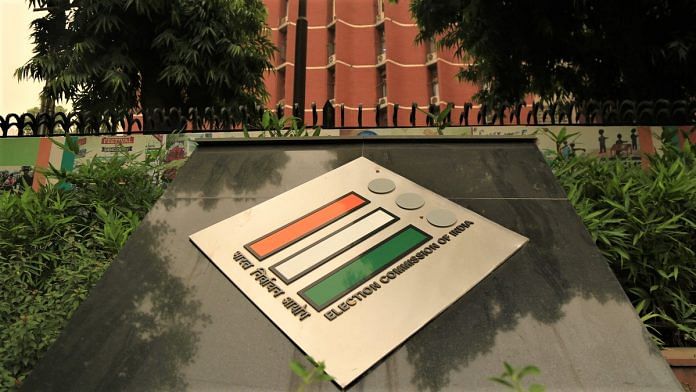New Delhi: It’s not just big players like the BJP and the Congress that receive funds through the contentious electoral bonds scheme. As many as 70 registered unrecognised parties, some with “unidentified addresses” and names that brook little to no recall, have received funds through this channel since its launch in 2018.
They include Sabse Badi Party, Rashtriya Peace Party, Hindustan Action Party, Nagarik Ekta Party, Bharat Ki Lok Jimmedar Party, Vikas India Party and Right to Recall Party, according to a submission made by the Election Commission (EC) in the Supreme Court this week.
A registered but unrecognised political party cannot contest elections on a fixed symbol of its own. It chooses from a list of symbols the Election Commission provides. This makes it difficult to track the electoral history of such parties.
The EC’s affidavit in the top court was filed in connection with a PIL by election watchdog Association for Democratic Reforms (ADR) that seeks to challenge the legality and constitutionality of the electoral bonds scheme.
The BJP-led NDA government had introduced the scheme in the Finance Bill 2017, but the bonds were launched the following year. An electoral bond is like a promissory note for political parties and can be issued in multiples of Rs 1,000, Rs 10,000, Rs 1 lakh, Rs 10 lakh and Rs 1 crore. The bond does not bear the name of the donor.
While the government argues that electoral bonds will bring transparency in political funding, several quarters have raised concerns about the scheme, including the EC.
Three of the 70 registered unrecognised parties have “unidentified addresses”, the EC affidavit said.
ThePrint had reported last month that India now has over 2,500 political parties — with a sharp increase seen in the last few years. Some of these parties are suspected of ‘money laundering’ operations.
Some of these parties are likely not even eligible to receive funding through electoral bonds since guidelines for the scheme restrict it to “registered parties [that have]… secured not less than one per cent of the votes polled in the last general election to the House of the People or the Legislative Assembly”.
Two of the aforementioned parties, for example, the Nagarik Ekta Party and the Bharat Ki Lok Jimmedar Party, had reportedly polled much less than 1 per cent of the vote in the 2017 Uttar Pradesh assembly elections and the 2014 Lok Sabha polls, respectively.
Asked about this possibility, sources in the EC said they would present a response to the Supreme Court if it raises a query.
In its affidavit, the EC also named seven national parties, including the BJP and the Congress, and 20 state parties that received donations via electoral bonds.
The affidavit didn’t mention how much money each of these parties received through electoral bonds, in accordance with an earlier Supreme Court order that instructed the parties to provide the information to the Election Commission in sealed cover.
Also read: EC had flagged concerns over electoral bonds to Modi govt after Lok Sabha elections too
Fresh affidavit — with a missing line
The Election Commission’s latest affidavit came less than a week after it had filed another one in the same case.
On 30 January, the EC had provided details of “status of filing of Electoral Bond details by political parties in sealed cover” as well as “Status of submission of Audited Annual Accounts of the political parties”.
The names of the parties remain consistent across both the affidavits, and sources in the EC claimed that the earlier submission was withdrawn due to “errors in language”.
There is one line from the 30 January affidavit, however, that hasn’t made the cut this time.
The line read: “At the outset, it is submitted that being a Constitutional Authority, the Answering Respondent does not propose to take any contentious issues or to join any submission on merits, etc., as these are matters between contending parties.”
This assertion was in stark contrast to EC’s earlier stand, where it had expressed serious concerns over the impact of electoral bonds on the transparency of political funding.
Sources said the EC filed the fresh affidavit as the earlier one could have been viewed as the poll panel watering down its previous stand against electoral bonds.
Also read: Constitutional protection for commissioners, 1 candidate, 1 seat — reforms EC to push again



